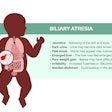
An emerging treatment known as prostate artery embolization (PAE) for benign prostatic hyperplasia (BPH) is effective and long-lasting, without causing sexual dysfunction, according to a Portuguese study presented at the Society of Interventional Radiology (SIR) annual scientific meeting.
In the study from Portugal, 72% of nearly 500 men who underwent the procedure reported improvement at three years in symptoms such as frequent trips to the bathroom.
"The results of PAE are similar to surgery but with fewer complications," said Dr. Martins Pisco, PhD, lead study author and director of radiology at St. Louis Hospital in Lisbon, in a statement. Patients undergoing the procedure are discharged from the hospital three to six hours after treatment, and most experience almost immediate symptom relief, he said. Pisco believes the treatment could eventually become the standard of care for an enlarged prostate.
The prostate gland enlarges as a man ages, and eventually it may press on the urethra and cause the flow of urine to be slower and less forceful. This leads to increased frequency of urination, weakened stream, and incomplete emptying of the bladder -- all symptoms that can negatively affect quality of life.
The study is the largest of its kind, according to Pisco. Among the 469 patients, 32% also experienced improved sexual function. PAE was successful in 87% of patients at three months, in 80% of patients at 18 months, and in 72% of patients at three years. In addition, results were better for patients who started with worse symptoms.
Regarding complications, one patient had a lack of blood flow to the bladder wall that was corrected by surgery, and a second patient had pain that lasted three months.
For the procedure, the interventional radiologist makes a small incision in the groin and guides a catheter to the prostate artery. Microscopic beads are released into the artery, where they lodge and temporarily block blood flow to the prostate, causing it to shrink. Several trials of PAE are underway in the U.S.



















